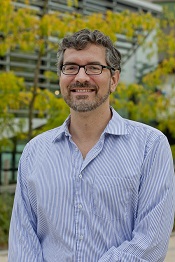Research and Academia Roundtable
Stakeholders Roundtables Venue: Room 21 Casa De La Cultura- Ahmed Sareer Ambassador / Permanent Representative Of The Republic Of Maldives To The United Nations

- Alexander R. Jachnow Head Of Urban Strategies And Planning IHS Erasmus University Rotterdam Netherlands

- Anne-Hélène Prieur-Richard Global Hub Director Future Earth France

- Lorena Regina Vivanco Cruz Arquitecta Urbanista Universidad de Cuenca fontfontfontfontecuadorfontfontfontfont

- Rose-May Guignard CIAT

- Sandra Pinel Research Scholar Antioch University New England United States of America

Knowledge and Capacity after Quito: Mapping Out Academia’s Commitment to the New Urban Agenda and Sustainable Urbanization
Academics and researchers are advocates for the use of sound research methods, and support the co-production and sharing of knowledge to better inform policy-making and to strengthen the capacity of government agencies to serve their constituents. The academic and research community could also monitor the development, management, governance, and capacity building initiatives of human settlements worldwide. With a focus on the creation of a multi-stakeholder “knowledge platform” for sustainable urbanization and cutting-edge, scalable capacity building initiatives, this Roundtable will demonstrate how and why researchers and academics promote nature-based innovation, robust science-policy interfaces in urban and territorial planning and policy formulation, the use of a systems approach to understand and address complex urban issues, as well as institutionalized mechanisms for sharing and exchanging information and capacity building techniques. The Roundtable will focus on a set of actions needed to create and operationalize the engagement and contribution of the research and academia constituency in the Quito Implementation Plan, as well as in the monitoring of the New Urban Agenda.
Objectives of the Roundtable
- Map out key priorities and activities that the academic and research community can pursue as part of its commitment to the New Urban Agenda and sustainable urbanization for the next twenty years.
- Present and expand upon strategies to strengthen capacity building initiatives, especially in key regions.
- Engage representatives of member states and policymakers in a discussion about the role and specific input of academia and research in the pursuit of sustainable urbanization.
- Present and expand upon existing proposals to establish a global “knowledge platform” for sustainable urbanization.
Guiding Questions
- Which should be the role of research and academia in the implementation of the New Urban Agenda?
- What value would a Multi Stakeholder Knowledge Platform for Sustainable Urbanization add to existing knowledge production and sharing efforts at the national, regional, and global scales?
- How would a Knowledge Platform operate, and what range of financial and human resources would it require?
- What forms of capacity development initiatives does the New Urban Agenda engender/ require to address urban and rural human settlements in equitable sustainable manner?
- How can capacity development initiatives be scaled up and/ or rolled out in the most vulnerable regions of the world?
- How can we ensure a strong engagement from all partner institutions and individuals in the implementation process of the New Urban Agenda? (And related issues, including funding, workshops, etc.)
- How can we ensure monitoring and evaluation the activities, performance, and achievements of the Constituent Group in the Quito Implementation Plan?
- What value would a Multi Stakeholder Knowledge Platform for Sustainable Urbanization add to existing knowledge production and sharing efforts at the national, regional, and global scales?
Roundtable Follow Up
- How do you propose to monitor the outcomes of this session in order to report back on progress at the 9th Session of the World Urban Forum (2018, Kuala Lumpur, Malaysia)?
